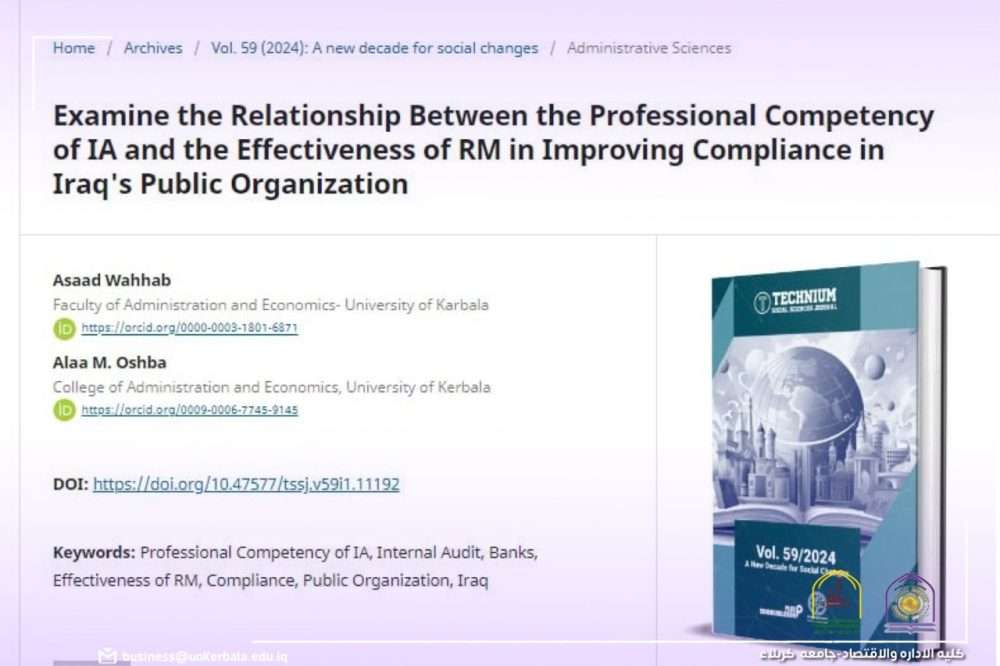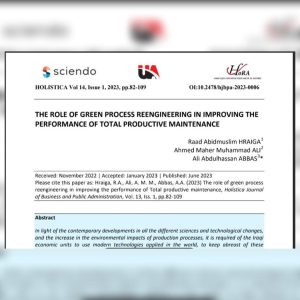Dr. Asaad Mohammed Ali Wahhab and Alaa Mohammed Oshba, lecturers from the Department of Accounting at the College of Administration and Economics and hilla municipality, published a scientific evaluation of the article titled “Examining the Relationship Between the Professional Competency of Internal Auditors and the Effectiveness of Risk Management in Improving Compliance in Iraq’s Public Organizations” in the Technium Social Sciences Journal.
Abstract
The importance of internal audits has escalated in the current dynamic and intricate economic and financial landscape. It plays a crucial role in assisting management in attaining its goals by offering unbiased and independent assurance regarding the efficiency of risk management, the sufficiency of internal control, and the accuracy of financial reporting. It is widely known that Iraq has seen instances of fraud and mismanagement of public funds in recent years, highlighting a systemic flaw in the regulatory structure and the auditing profession inside public sector organizations. However, by enhancing compliance through the fundamental pillars of optimizing the efficiency of internal audits and the efficacy of risk management, we can envision a future where the misuse of public funds and various forms of corruption are minimized. This, in turn, will lead to improved adherence to relevant laws and the production of reliable financial statements that can be used for decision-making by appropriate stakeholders. It is the role of government agencies to prioritize these improvements, as they have the power and responsibility to do so. We created a questionnaire of three dimensions and 45 paragraphs to fulfil the research objectives. A sample of internal auditors in sectoral organizations was randomly selected, comprising 283 respondents. We employed both primary and multiple regression analyses to examine the hypotheses. The study concluded that there needs to be a strategy for continuing education for internal audit employees, which indicates a lack of sufficient interest in this topic and the lack of clear strategies and policies for risk management.





























































